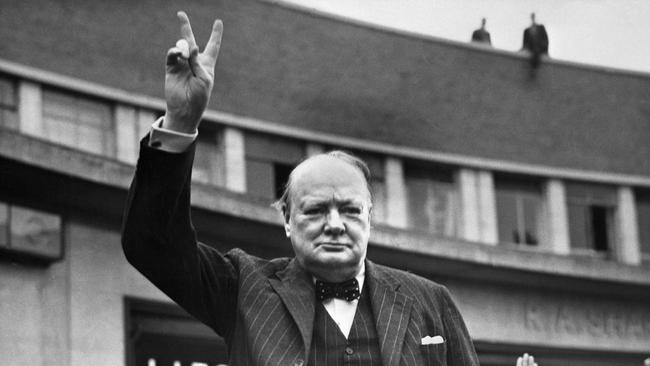
Of course, Biden is not the first US president to put victory aside. Nothing more surely presaged the coalition’s rout in Afghanistan than Barack Obama’s December 2009 speech at West Point, in which the word “victory” did not appear even once.
Speaking to the academy’s cadets, Obama announced a “surge” that would see a massive deployment of troops to Afghanistan; but having expressed some “anxiety about the notion of ‘victory’ ”, he shied away from stating the goal the young Americans being placed in harm’s way were to achieve.
Winston Churchill, explaining Britain’s war aims in May 1940, had none of Obama’s reticence. “You ask, what is our aim? I can answer in one word: victory – victory, victory at all costs, victory however long and hard the road may be; for without victory, there is no survival.”
Nor was Franklin Delano Roosevelt stricken by Obama’s tummy flutters: “The object of war,” said the US Army’s instructions for World War II, “is to bring about the complete submission of the enemy.” The task of the millions of men being thrown into deadly battle was to achieve the enemy’s “decisive defeat”, “breaking the enemy’s will and forcing him to sue for peace”.
The tragedy of Vietnam underscored that mission’s centrality. “When we commit our troops to combat,” said the Powell doctrine, which the administration of Ronald Reagan adopted in 1984, “we must do so with the sole object of winning: once it is clear that our troops are required, we must commit every ounce of strength necessary to win.” It was in that spirit that Reagan, when asked the outcome he was pursuing in the battle against communism, bluntly replied “We win, they lose”.
Those great leaders knew that in war victory is not just the most important thing; it is the only thing. Although it provides no guarantees, it offers a chance of ending ongoing conflicts, with their interminable cycle of action, reaction and counter-reaction. Destroying the old status quo, it creates the scope to install “the better state of peace” Saint Augustine said is the telos, or animating purpose, of just wars.
And more than any other outcome, it can reshape the moral, political and social landscape, imposing the victors’ values. If today’s keffiyeh-clad idiots can prattle on about human rights and war crimes, it is because – and only because – the Allies ruthlessly crushed the Axis powers, reducing their cities to rubble, forcing their population into homelessness and starvation, and then building, on totalitarianism’s ashes, a shared future of freedom.
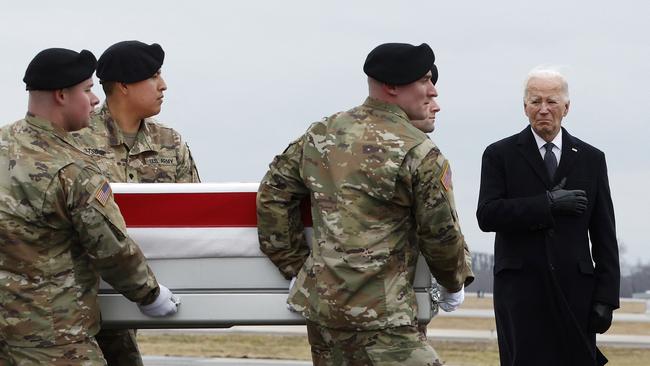
There are, of course, wars that result in less than absolute victory. However, those “limited” outcomes are no recipe for peace: each of the parties, wrote Carl von Clausewitz, will regard that result “as just a transitory evil, for which a remedy may still be found at some later date”. Knowing that “so long as I have not overthrown my opponent, he may overthrow me”, the logic of mutual distrust inexorably reignites all-out conflict.
The data confirms the great strategist’s prediction: one-third of all “limited” outcomes prove to be no more than fleeting pauses in “forever” wars. Sure, those wars are punctuated with high-minded promises of peace. But “promises”, said Lenin, “are, like pie crusts, leaven to be broken” – and it is only when an adversary’s war-fighting capacity is largely eliminated that durable peace typically prevails.
That is why Clausewitz argued that “the second act”, in which a retreating enemy’s remaining capabilities are hunted down and systematically degraded, is “even more important than the first”. Allowing a wounded adversary to regroup, in circumstances where it “is able to reap the benefit of the terrain”, gives it “the very means of starting a recovery in the morale of its troops”. Instead, “strategy at this point (must) demand that the victory should really be complete”, “shattering the enemy’s self-confidence and shocking the whole nervous system” of its fighting force.
Those are the reasons for pursuing Hamas wherever it hides, including into Rafah. Inevitably, that pursuit entails civilian casualties: that is the tragedy of war. Israel’s extraordinary precautions have reduced the ratio of civilian to combatant casualties to less than one-third the levels typically observed in contemporary urban warfare and even further below those experienced in Hue or, more recently, Fallujah. There are, however, simply no painless ways of eliminating scourges such as Hamas, which callously and deliberately put civilians at risk.
What is undeniable is that it is far more harmful to allow those groups to recover, and set off another round of appalling bloodshed, than to deal with them once they have been seriously weakened.
Yet the Biden administration seems intent on throwing Hamas a lifeline. In Afghanistan, the US troops used to say “the Americans have all the wristwatches but the Taliban has all the time”; Hamas believes that too. The pressure Biden places on Israel to back off will, it thinks, become ever more intense as the doubts about his competence mount, inducing increasingly frantic efforts to shore up his “progressive” base.
Moreover, as the US distances itself from Israel, the rest of the West, which was half-hearted from the start, will follow suit, allowing Hamas to claim the blood-soaked triumph it always thought its genocidal attack on October 7 would ultimately secure.
But Biden’s current woes are not solely to blame for the potential disaster. Rather, if spinelessness has such political resonance it is because the West has lost the will, and the courage, to win.
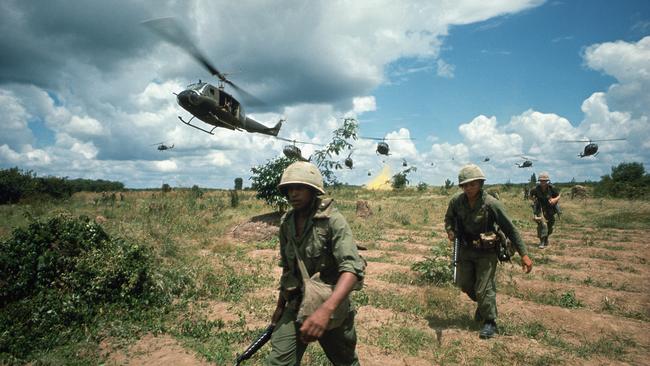
Refusing to face harsh realities, we hold ourselves responsible for civilian casualties, not the terrorists who use their own populations as human shields. Drowning in self-loathing, we shy away from asserting the right to crush – and hence effectively deter – aggressors, as if Western victories were a scandal, while Western defeats are a mere misfortune. As for ensuring Western values triumph over barbarism, it is no longer seen as the road to a better world: instead, it is denigrated as the epitome of arrogance, bigotry and racism.
Clausewitz, a Prussian general who knew what it means to “look into the glazed eyes of a soldier dying on the battlefield”, described war as “a horrifying experience”. But its horrors cannot “excuse blunting our swords in the name of humanity”. For once those swords are blunted, he warned, “someone will, soon enough, come along with a sword that is razor-sharp and hack us to shreds”.
Today, it is Israel’s limbs that risk being dismembered. But with Russia, Iran and China gloating as America prevaricates, this much is certain: it is ours that will be severed tomorrow.



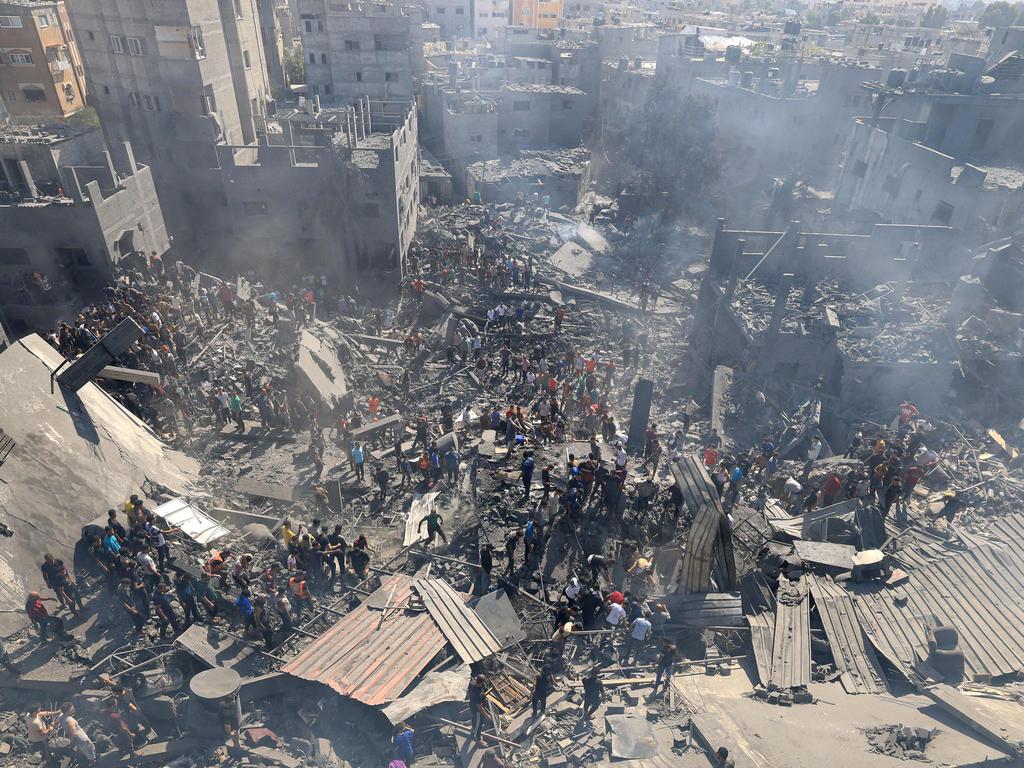
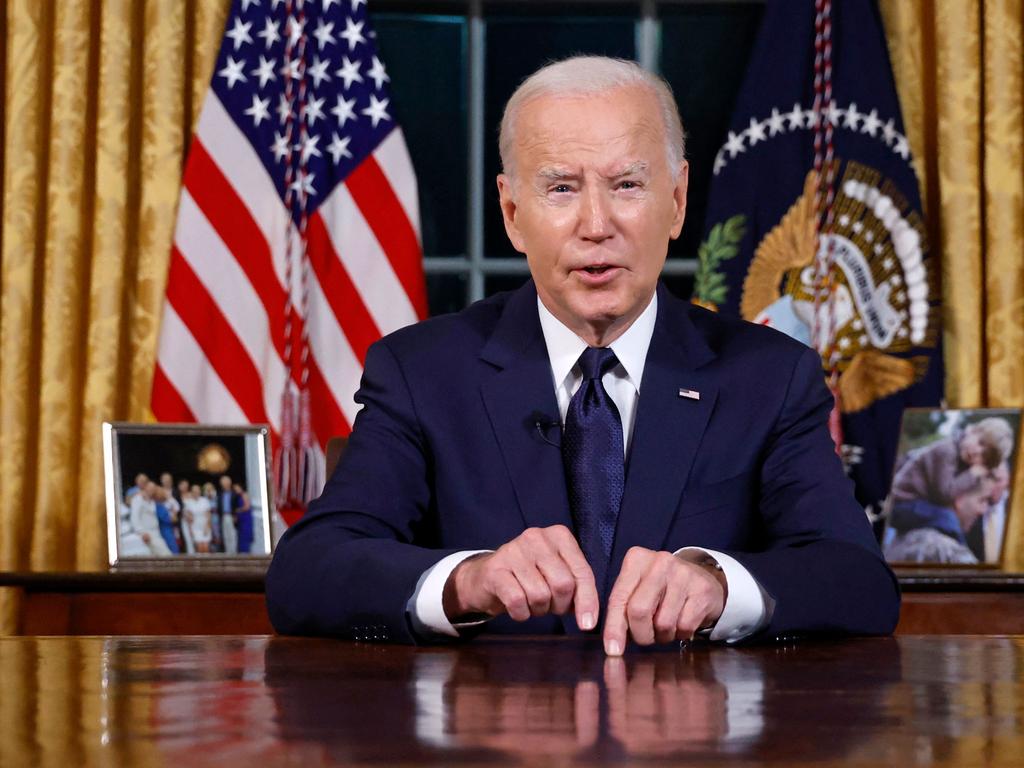



There is, it seems, something else Joe Biden has forgotten: that the aim of war is victory. And if victory is to be achieved, in Gaza or anywhere else, the enemy cannot be allowed to shelter, regroup and strike again.